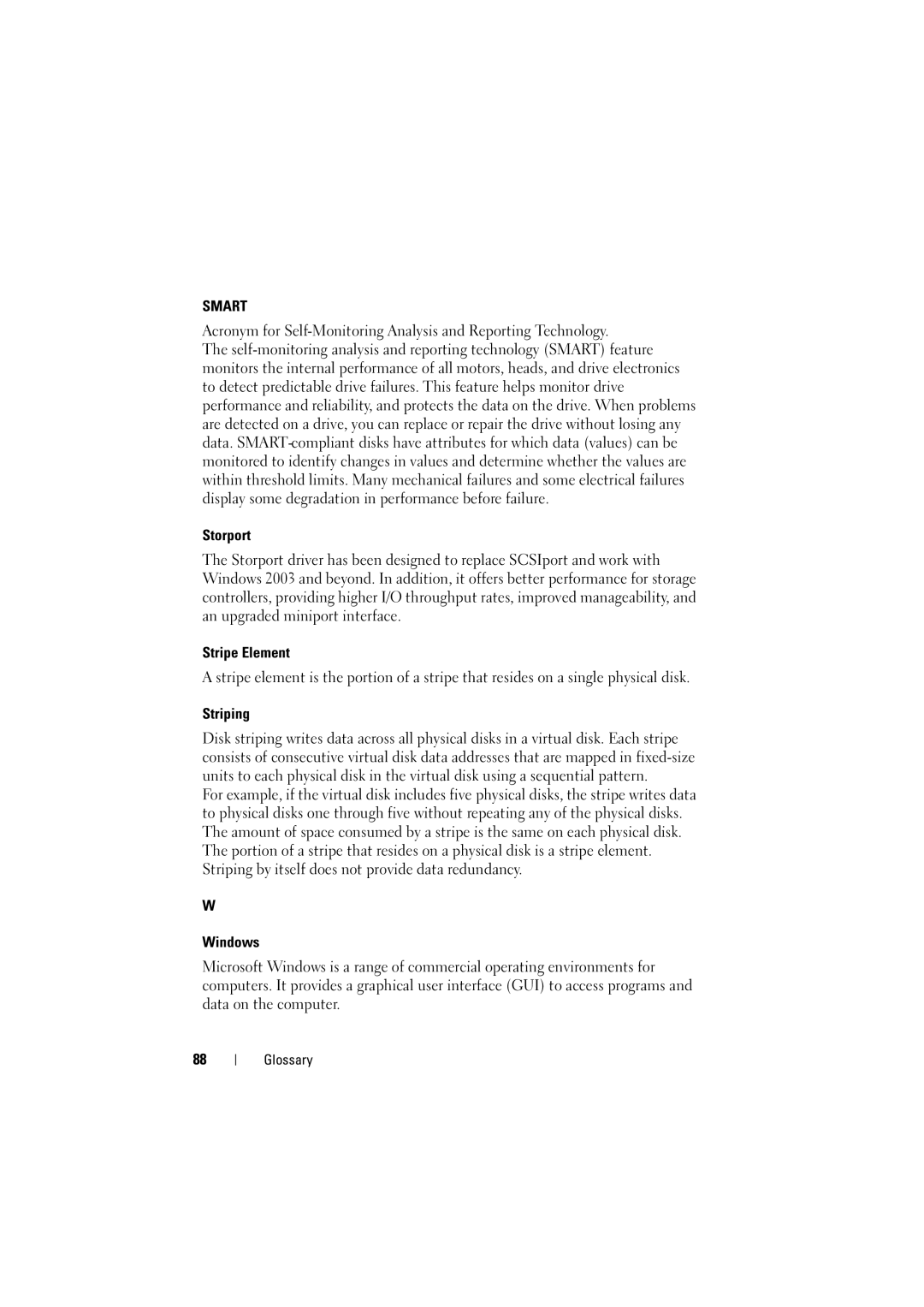SMART
Acronym for
The
Storport
The Storport driver has been designed to replace SCSIport and work with Windows 2003 and beyond. In addition, it offers better performance for storage controllers, providing higher I/O throughput rates, improved manageability, and an upgraded miniport interface.
Stripe Element
A stripe element is the portion of a stripe that resides on a single physical disk.
Striping
Disk striping writes data across all physical disks in a virtual disk. Each stripe consists of consecutive virtual disk data addresses that are mapped in
For example, if the virtual disk includes five physical disks, the stripe writes data to physical disks one through five without repeating any of the physical disks. The amount of space consumed by a stripe is the same on each physical disk. The portion of a stripe that resides on a physical disk is a stripe element. Striping by itself does not provide data redundancy.
W
Windows
Microsoft Windows is a range of commercial operating environments for computers. It provides a graphical user interface (GUI) to access programs and data on the computer.
88
